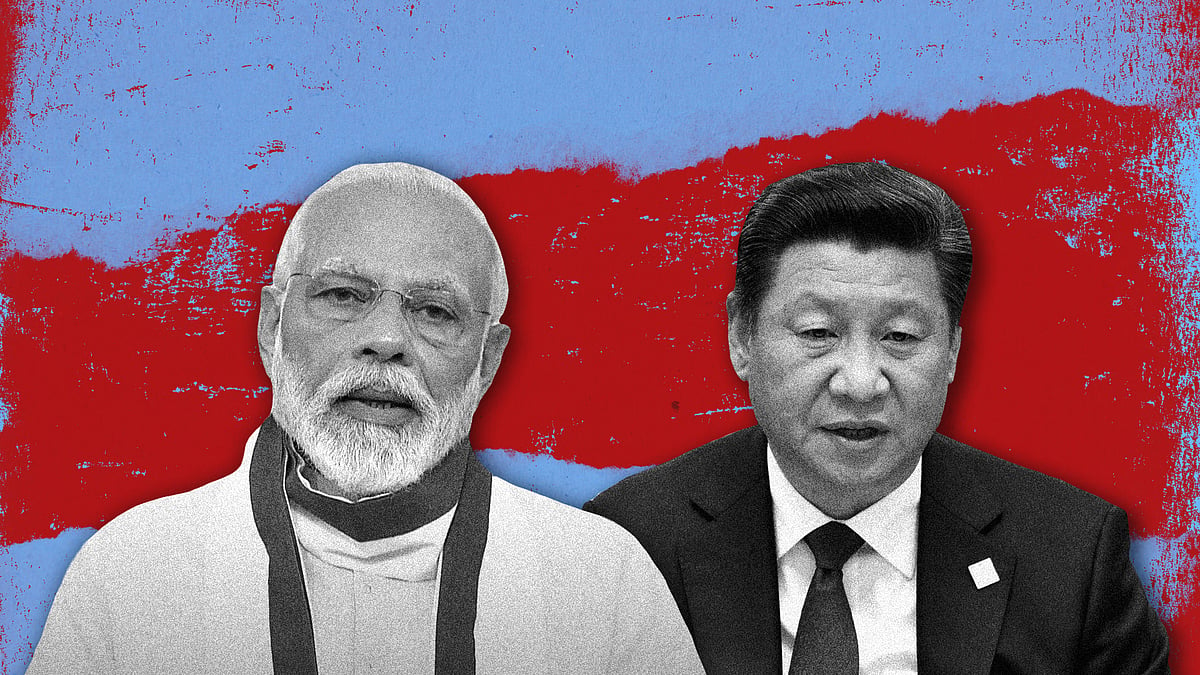It’s Bihar Regiment, not Biharis
ANI’s headline describing soldiers from across Indian states as ‘Biharis’ runs contrary to the ethos of the Army.
The 20 Indian soldiers who lost their lives in the clash with Chinese troops in Ladakh’s Galwan Valley last week belonged to six different units of the Army, including three infantry battalions and two artillery regiments.
They came from different parts of the country.
According to sources in the Army, most of the fatalities are from 16 Bihar Regiment – 12 soldiers and the commanding officer Colonel B Santosh Babu. They belonged to Bihar, Jharkhand and Odisha.
Two junior commissioned officers and one non-commissioned artillery officer from Punjab and Tamil Nadu, and a signalman from the Brigade Signal Company were also among the casualties. Naik Deepak Kumar from the Army Medical Corps was attached with 16 Bihar as a nursing assistant and was killed in the clash as well.
A senior Army officer told the Indian Express: "The fact that there are casualties from units other than 16 Bihar means that the other units deployed nearby also rushed their troops to the spot.”
It is embarrassing then that the news agency ANI decided to categorise these soldiers as “Biharis”. The very headline, "How the Biharis removed the Chinese observation post from PP-14 in Galwan valley”, goes against the ethos of the armed forces. An officer from Telangana commanding troops from Bihar and being responded to by soldiers from Punjab, Madhya Pradesh and Odisha in the absence of clear orders reflects the strength of the Indian Army.
The Army is neither Bihari nor Punjabi, nor do we ever address our battalions or regiments in this manner. It is the Bihar Regiment, the Punjab Regiment, the Dogra Regiment, never Punjabis, Dogras or Biharis as alluded to in the ANI article.
What news won’t show
As this PBS piece points out, "War is the most destructive and pitiless of all human activities. And, yet, the experience of war has a profound and strangely compelling effect on those who fight. Combat kills, maims and terrifies, but it can also reveal the power of brotherhood and a selfless sense of purpose. It’s an experience that changes soldiers, and those changes last a lifetime."
It changes the lives of their families too.
"Some combat veterans have felt that their lives never mattered more than when they were in combat. This sense of meaning and purpose grows out of protecting, and being protected by, their comrades in arms — a shared commitment to safeguard one another's lives that is non-negotiable and only deepens with time. Psychiatrist Jonathan Shay tells us that 'the terror and privation of combat bonds men in a way that the word 'brother' only partly captures. Men become mothers to one another in combat," the PBS piece notes.
It adds, "Most of those who join the military and go to war are young — 18, 19 years old — and many of them have never been away from home. They have little experience of the world, let alone war, death and killing. For them, and for all soldiers, combat is a complex mix of emotions that defines the experience of war and shapes the experience of coming home."
Some do not find their way back home at all.
Once the adulation and 24-hour news coverage is over, it’s the families of these young men who are left to pick up the pieces on their own. No one knows how devastating a war can be better than a soldier’s family. But the social issues impacting the next of kin rarely find space in popular media discourse.
Here, I would like to touch upon this aspect of ensuring that their rights are protected, preventing sharks from family or society from depriving them of the financial benefits they are entitled to. Apart from pensions, gratuities and other financial support provided by the Army, the next of kin also get relief from the state government, including money.
While an officer’s wife is expected to be educated and aware of her rights, she can take control of whatever comes her way with some guidance from friends and family. Such is not the case for the majority of widows of junior and non-commissioned officers, and soldiers from rural areas. There have been exceptions even in the case of officers where the in-laws declared the widow “unlucky” and denied her any family support.
For others, it can get worse. Her family members eye the financial package and harass the widow to either get her to part with it or to contribute the amount to some common family cause, leaving her at their mercy. In addition, there are sharks in the circle of family or friends who go all out to divest her of the money by devious means. Refusal to cooperate more often than not results in arm-twisting and harassment.
Our social system, especially in rural India, continues to be plagued with superstitions. Poverty and greed added to a fair degree of illiteracy are a dangerous mix for widows and their children. Many children are born after the father has passed away.
It falls upon the soldier’s unit, battalion, the regimental centres and the Army Headquarters to ensure the next of kin get their dues in a correct and timely manner. The Zilla Sainik Welfare in the states also has a significant role and responsibility. There needs to be institutional effort to offer considered and mature advice to the next of kin about where as well as how to invest such money in a secure manner. Proper education and guidance regarding each little aspect concerning the benefits is a must while preventing families from being deprived of the benefits by touts and greedy family members.
After the loss of the breadwinner — the husband, father, son — this period of transition towards a new life is the most important and a serious social responsibility.
Needless to say, this follow-up to help rebuild the lives of families of soldiers who are killed in combat plays a crucial role in boosting the morale of not only soldiers, but also the youth who may be willing to join the armed forces. Far more than the war hysteria on TV news.
***
The media must be free and fair, uninfluenced by corporate or state interests. That's why you, the public, need to pay to keep news free. Support independent media by subscribing to Newslaundry today.
 TV Newsance Episode 93: Nationalist news on China attack
TV Newsance Episode 93: Nationalist news on China attack Can India confront China the way China confronted the Soviet Union?
Can India confront China the way China confronted the Soviet Union?
